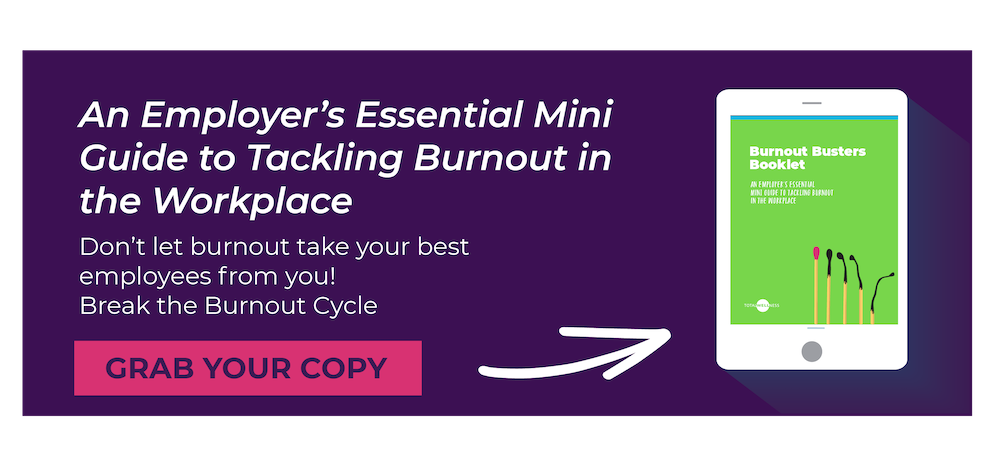For a working parent, the workday doesn’t stop at 5 p.m. You still have to pick up your kids from school, rush them to soccer practice, find time to run to the grocery store, and then somehow cook a healthy meal. It’s a stressful lifestyle. And if you’re not careful, that stress can sneak its way into your daily work life.

A new survey by the Business Performance Innovation Network (BPI Network) collected data from 2,000 working parents across North America. Nearly two-thirds of the survey respondents claim they have experienced parental burnout – with 40% of those cases being described as “significant” or worse. This new report details just how big of a problem parental burnout is in North America.
Parental burnout is more than just a family issue – it’s an issue for corporate America. Many factors of modern work life contribute to parental burnout. In fact, nearly 30% of parents reported that work-related factors are primary contributors to parental burnout. This included the challenge of both parents working and parents feeling exhausted from work.
According to BPI Network, some of the impacts of parental burnout include:
- Parents feeling anxious and worried all the time
- Inability for parents to enjoy quality family time
- Decreased work performance and concentration while on the job
The impacts of parental burnout can really harm the performance and overall health of employees. Take a look at some of the other key findings of the survey:
- 63% of parents report they have experienced some form of parental burnout
- 40% of burnout cases are significant
- 40% of parents stated that parental burnout had profoundly impacted the quality of their life
- 49% of parents stated that parental burnout had slightly impacted their wellbeing
What Parents Can Do
Being a working parent is hard. No one will tell you otherwise. It’s difficult to balance a full 9-to-5 workday while meeting the needs and expectations of your family. When respondents were asked whether they believed it’s harder to raise children today than it was when they were growing up, an astounding 90% of parents agreed that it’s more difficult now than ever.
The study took a look at some of the challenges that today’s working parents face. The top five challenges included:
- Social media distractions (29%)
- Both parents working (27%)
- Emotional or behavioral dysfunction (24%)
- Peer expectations and competition – including bullying (21%)
- Violence and safety concerns in school (18%)
But how can parents navigate these challenges and avoid parental burnout? The BPI Network suggests that working parents:
- Establish well-defined boundaries with children and work
- Understand and encourage child’s personality
- Get more adult fun time
- Set clear limits on devices in the home
What Employers Can Do
According to BPI Network, “employers need to do more to address and mitigate the challenges of worried and worn-out parents.” It’s important for employers to realize how detrimental parental burnout can be to an employee’s overall work performance and wellbeing.
Obviously, employers can’t control what goes on in their employees’ home life. But what they can control is how their work environment affects the stress levels of working parents. A few ideas for employers to address parental burnout in the workplace include:
Know the signs. Employers should be educated about what parental burnout looks like. According to the BPI Network’s report, the top indicators of parental burnout include extreme frustration (33%), constant exhaustion (25%), and difficulty handling tasks (17%). If you notice your workforce is displaying these signs, it’s time to take action.
Educate employees. Many working parents at your company might not know about parental burnout or its effects on work performance. Help educate employees at your company by sharing the BPI Network survey, hosting a lunch and learn on the topic, or adding in a focus on parental burnout in your workplace wellness program.
Offer flexibility. Flexibility is key. A flexible workplace allows working parents to achieve a positive balance between work-life and family-life. In fact, flexibility is one of the top perks that employees look for in an employer. Offer employees the ability to work from home when needed, flexible hours, and flexible PTO policies.
Encourage open communication. Working parents need to feel supported by their employer. Encourage open communication among your workforce, and let them know that they won’t be judged for trying to keep up with family obligations and responsibilities. Most employers are working parents themselves, so try your best to connect with employees on a parent-to-parent level as well.
Parental burnout is problematic for parents, employers, and corporate America. But with some education and a few tweaks around the workplace, employers can help reduce the amount of stress that is put on working parents. For a more in-depth look at parental burnout in corporate America, click here to download the full BPI Network study!
Have you experienced parental burnout? Feel free to share in the comment section below!
Like this blog post? Share it with your employees or co-workers with this printable version of the blog!
Image created by Freepic.diller - Freepik.com



